Where the Creativity of Business Meets Art
Second Interview: Education x Creativity (Part 1)
7 July 2023
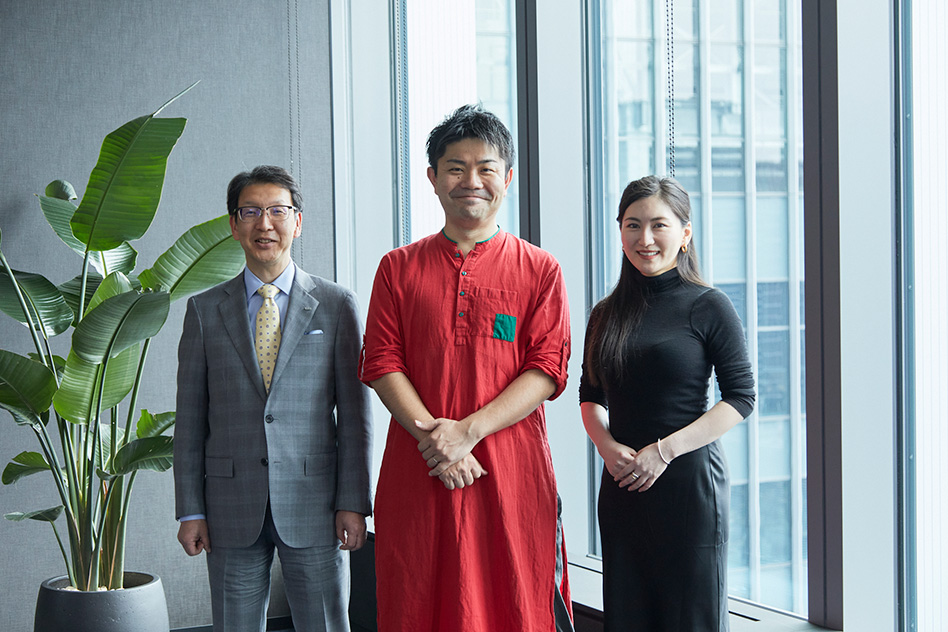
Okuda: Today marks the first time we’re doing a three-person interview. We are joined by Mr. Kaito Miwa, CEO and co-founder of e-Education, the NPO behind a project to provide young Bangladeshis with educational opportunities on par with developed countries, propelling them into the country’s top national universities.
A discussion between someone like Kaito and a soprano singer like Ayako Tanaka might seem odd at first, but the two of them have a few things in common. First, they’re both exceptionally enterprising. Ayako may be a musician working in the world of fine art, but in many respects, she has the attitude of a startup entrepreneur. She is no stranger to taking risks and accomplishing what she wants. She has clear reasoning behind her approach and is able to rally her peers around her. She also has a differentiation strategy that plays to her strengths.
Another thing they have in common is supporting youth education in developing countries. Kaito has started educational activities for youth in Bangladesh, while Ayako has done something similar for music education in Argentina. I also sense a shared intention between their activities. They both provide those without access to an adequate education in developing countries with opportunities to receive a better educational experience, similar to those offered in developed countries. Ayako brings an Argentinean youth orchestra to Japan, for example, while Kaito works to provide quality education to the youth of Bangladesh. I thought it would be interesting to bring the two of them together today to discuss their shared interests, among other things.
And now, I'll hand it over to you, Ayako.
Tanaka: Thank you, Mr. Okuda. Kaito, could you start by telling us how you began providing educational opportunities to young people in Bangladesh? I saw on the internet that Bangladesh is the poorest country in Asia. Did that have something to do with it?
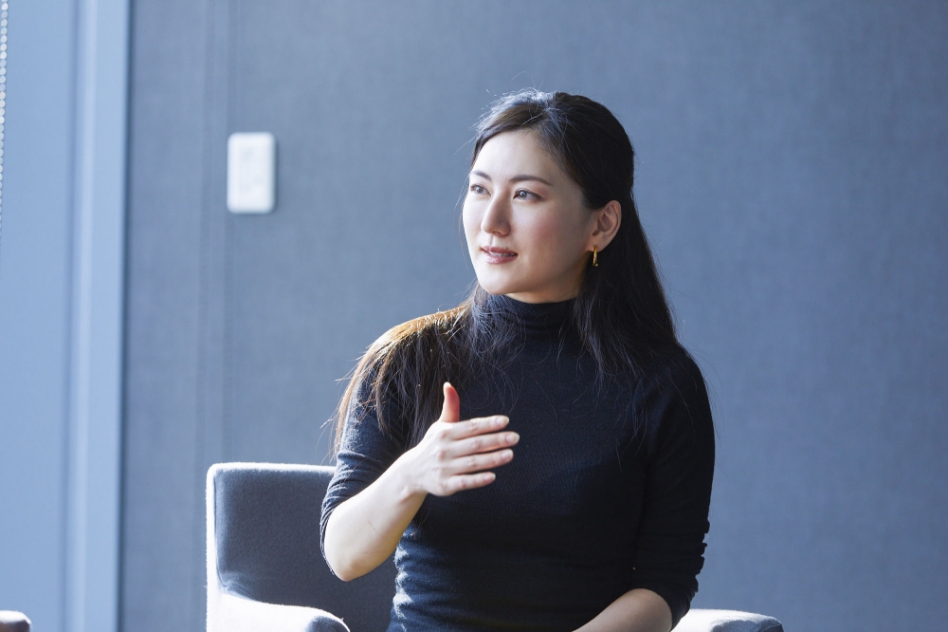
“Seeing children studying under street lights late at night and feeling their energy is what inspired me to start an NPO in Bangladesh” (Kaito)
Miwa: In 2006, Dr. Muhammad Yunus received the Nobel Peace Prize for founding Grameen Bank in Bangladesh. I had a hunch that by creating an innovative bank in what was then the poorest country in the world, Bangladesh was trying to attract entrepreneurs who could change the world. Poverty was one of the reasons we started our NPO there, but at the same time, I just thought it would be an exciting place to live, alongside extraordinary entrepreneurs who were doing everything they could to overcome the scourge of poverty.
Tanaka: I see. So, is it safe to say that, rather than doing lots of research beforehand, your decision was influenced by your stay in Bangladesh and finding it a fascinating place to live?
Miwa: Yes, that's right. While backpacking around Asia during college, I saw tremendous potential there, not only in Bangladesh but across Asia. The children were full of energy, and I saw many of them studying under street lights late into the night. Perhaps I was attracted to developing countries because of my experiences then. Issues like poverty and philanthropy weren’t on my mind at the time.
Tanaka: So your firsthand experience was the biggest factor? How did you eventually start e-Education?
Miwa: During the last year of my undergraduate program, I met Atsuyoshi Saisho, who I call Saisho-kun. He was two years my junior at the same university and was doing an internship at Grameen Bank. We connected via our many mutual friends, and that's when we hit it off and started e-Education together.
Tanaka: So, you felt something walking through the streets of Bangladesh, and that's also when you met your future partner and launched e-Education? Please tell us a little more about your reasons for founding the NPO.
Miwa: There was this idea that Saisho-kun had. He had wanted to take video lessons from the most popular instructors at Toshin High School, a college prep school he had attended in Japan, and tailor them to suit the educational needs of Bangladesh. When I first heard him talk about it, my mind was blown. I was utterly amazed by the idea. In fact, I had worked part-time at Toshin High School until the day before I left for Bangladesh. I did this for almost four years, so it’s no exaggeration to say that I spent most of my time in university at Toshin High School. The timing felt like fate to me. We chatted just after I'd been in Bangladesh, thinking, "There must be something I can do for this country.” And the moment he mentioned “video education,” I knew it was meant to be. I loved the idea of visual education. It was something I liked and was good at. I met Saisho-kun on January 31, and we launched e-Education less than 24 hours later on February 1.
The catalyst for e-Education’s evolution was sparked by the transformative journey of one student who went from a village with no electricity or internet to a top national university in order to help his young brother working overseas (Miwa)
Tanaka: How did you get your first students?
Miwa: We had the idea to start the project in a village supported by Grameen Bank, where Saisho-kun was interning, but I didn’t think it would work because there was no story behind it. That's when I proposed what I still believe to be my best idea to date: finding a local co-founder. We met with 100 students at the University of Dhaka, the Bangladeshi equivalent of The University of Tokyo.
Tanaka: So you conducted interviews?
Miwa: Yes, I had a feeling that rural high school students were not getting into top universities in the cities, but I didn’t know why. Bangladesh has whole streets lined with college prep schools on the outskirts of Dhaka, and I hypothesized that students had to go to one if they wanted to get into university. So we interviewed college students to see if my hypothesis was correct. While our main objective was to find out whether the students had attended a prep school or not, I thought it was also an excellent opportunity to find potential co-founders. At the end of each interview, participants would fill out a form. At the end of the form, I added a question that said we wanted to solve Bangladesh's educational problems through video education and asked them what they thought. We then interviewed 11 students who responded as potential partners. Among them was a boy named Maheen, who left us the most passionate message and eventually joined us as the third and final co-founder of e-Education.
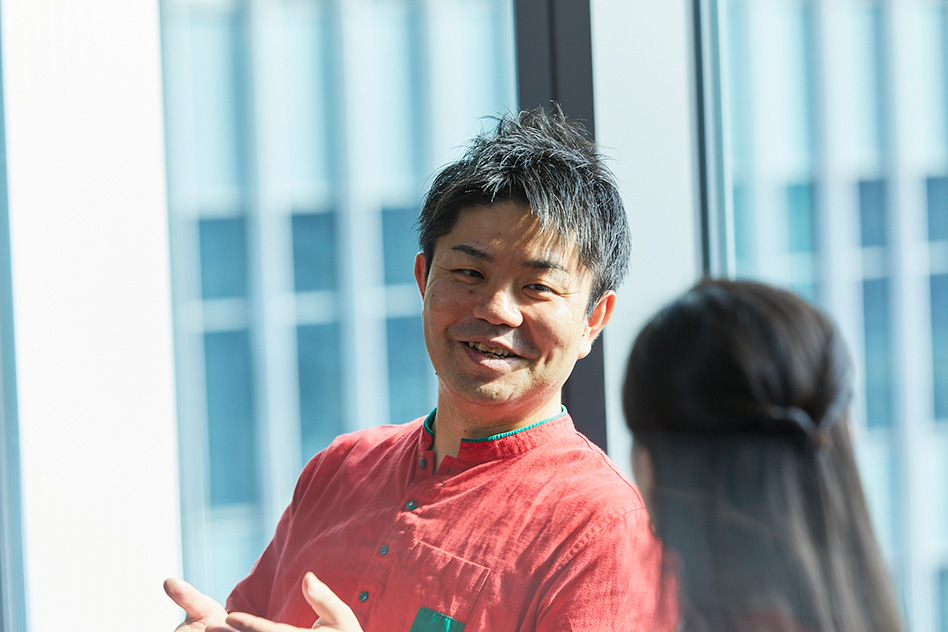
Tanaka: So Maheen was a university student at the time?
Miwa: Yes, that's right. In his comment, he went so far as to write that he’d quit college if it meant he could work with us. When Maheen joined our project, I asked him if he would like to test our video education in his village. It turned out that he had been the only person from his village to go to the University of Dhaka in the nearly 40 years since Bangladesh became independent in 1972.
Tanaka: How far away from the capital is the village where Maheen is from?
Miwa: It’s about six hours by boat. At the time, the village had little electricity and no internet access. Maheen's younger brother was only in middle school but went abroad in order to earn the money needed to send his older brother to university. There was a story there, a story about a boy who entered university bearing the weight of his younger brother’s hopes and dreams. We were convinced that Maheen’s story would be the catalyst we needed for e-Education. In fact, when Maheen recruited people in his village, 32 students came together in an instant, and thus e-Education began in earnest.
Okuda: It's great that you found Maheen. There is something truly inspiring about his story. I presume that you were moved by his story, and you knew others would be, too, which is what led you to the idea of working with him.
Miwa: Yes, exactly. I think that having accessible role models can be transformative, unlike idolizing distant figures on a pedestal. Particularly for middle and high school students who are preparing for entrance exams and are unsure of what lies ahead, I think it's far more impactful to hear from a local big brother or sister who can talk to you about how interesting their own path has been, rather than hearing a lecture from some elite university professor. That was something we were mindful of from the start.
Okuda: Who is responsible for the e-Education curriculum, and how is it carried out? Are materials made in the local language?
Miwa: Yes, of course. Allow me to delve into something slightly niche. Have you ever had an unforgettable exam experience? And Mr. Okuda, do you remember your university entrance examinations?
Okuda: I remember my university exams very well. For me, it was exciting to guess what would be on the exams, and I even enjoyed those pre-test jitters.
Miwa: My mentor was Mr. Osamu Hayashi from Toshin High School, who completely changed how I thought about my entrance exams. He taught me to think about them as a kind of game. I believe that, unlike your studies in school, you can have fun with your exams. You have to consider how to maximize your scores and in which subjects. Some students focus on honing their strengths, while others work on improving their weaknesses in order to pass. The good thing about video education is that you can decide for yourself what you want to study. In school, students take classes according to their timetable, but in video education, students get to create their own schedule on their own terms—what they will study today or tomorrow, for example. They get to decide whether they want to develop their strengths or overcome their weaknesses and then work hard to achieve their goals. I think my own experience with entrance exams is what made this project so interesting for me.
Let me tell you how crazy the Bangladeshi examination system is. Like Japan, Bangladesh distinguishes between humanities/social science and mathematics/natural science majors. When we investigated the exam subjects for a potential humanities major at the University of Dhaka, which is the equivalent of The University of Tokyo's Humanities Group 1 (bunka ichirui) in Japan, we found there were four subjects: English, Bengali, Bangladeshi history, and world history. The test consists of 25 multiple-choice questions in each of the four subjects, for a total of 100 questions. Students are given 60 minutes, which includes the time to distribute the answer sheets, so they really only have 50–55 minutes to answer the questions. Simple math reveals that they can only spend 30–40 seconds on each question. Students aren’t allowed to practice for the 50-minute exam in school, so many of them can’t pass without going to a prep school first, which was very revealing about the structure of the education system. And since it’s difficult to get a perfect score on a multiple-choice test, you simply need to skip certain questions you don’t know the answer to. These factors led me to believe that it’s possible to get a high score as long as you have the right testing techniques.
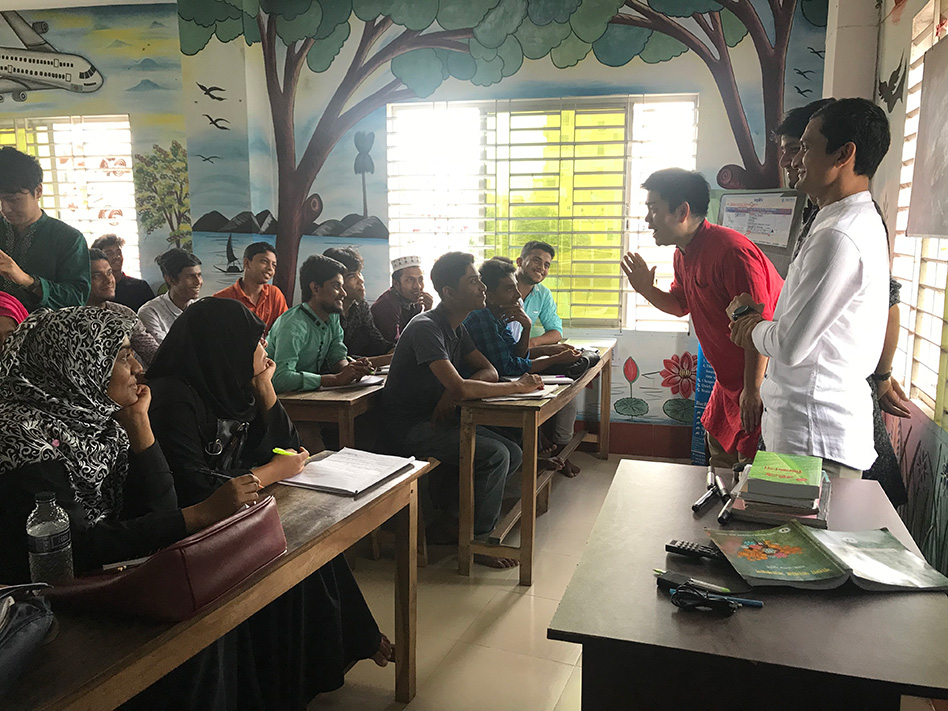
Furthermore, there are three stages in the Bangladeshi university entrance examination process: one examination at the end of middle school, another at the end of high school, and then the multiple-choice examination ahead of university, with a score distribution of 30, 50, and 120 points, respectively. An exam that children take casually at the end of middle school accounts for 30 of the 200 points in the University of Dhaka’s acceptance process. Children in Dhaka scored 28 or higher on average on this test because many of their parents were exam savvy and would push their children to get perfect scores during middle school. Children in rural villages with parents who haven’t graduated from middle school usually score around 20 points or, at best, 25 points. The game is afoot before they even know it, and by the time they do realize, there’s a huge gap between village children and city dwellers. The kids I met cried that they wanted to go to university but were already too far behind. Once I learned that the structure of the university entrance examination consisted of 100 marked questions for a total of 120 points, I was convinced that village children could also do well on these tests as long as they had the proper strategies to do so. After all, many of them had the stamina and perseverance to study under street lights until late at night, so I began working to help high school students in rural villages.
Ayako, when I read your conversation with Mr. Okuda, I really liked your approach of “winning where you know you can win.” The world of examinations is black and white. The people who get the most points pass. In Bangladesh, where one second can make a one- or two-point difference, then the ticket to success belongs to those who work hard to master this format. I think this is a uniquely Japanese sense that many people overseas do not have. Though Bangladeshi children lacked the realization that examinations are merely a game of points, I started e-Education because I thought that Saisho-kun and I, both of whom were exam nerds, even by Japanese standards, could do something about it.
Tanaka: So some village children go through middle school without knowing the system, while others understand everything by that point and are already planning for university?
Miwa: Yes, children in urban areas study with the system in mind. And the gap between urban and rural has not changed much in recent years. When e-Education received an award from the Minister of Education, I was asked for a comment. I believe that there is such a huge problem with the system that I simply said, “Please change your examination system.” But it takes time to change the system, and not much has changed over the past decade, especially from the point of view of the children in the villages who get off to a bad start and have to bet their entire college careers on the final university entrance exam.
With e-Education, students can acquire the ability to take their futures into their own hands based on an understanding of their strengths and weaknesses rather than simply studying techniques for a test (Miwa)
Okuda: Let me try to summarize what you’ve said. Your approach prioritizes test-taking techniques over the content of the curriculum. You believe that, first and foremost, one must beat the exams because going to university can change their lives. You intend to guide individuals on ways to successfully enter university and provide them with the opportunity to grasp that opportunity. However, what I find extremely tricky is whether those individuals who focused their efforts on testing will be able to apply themselves to their studies once they enter university. I have some doubts as to whether they possess the knowledge and critical thinking skills that can truly enrich their lives.
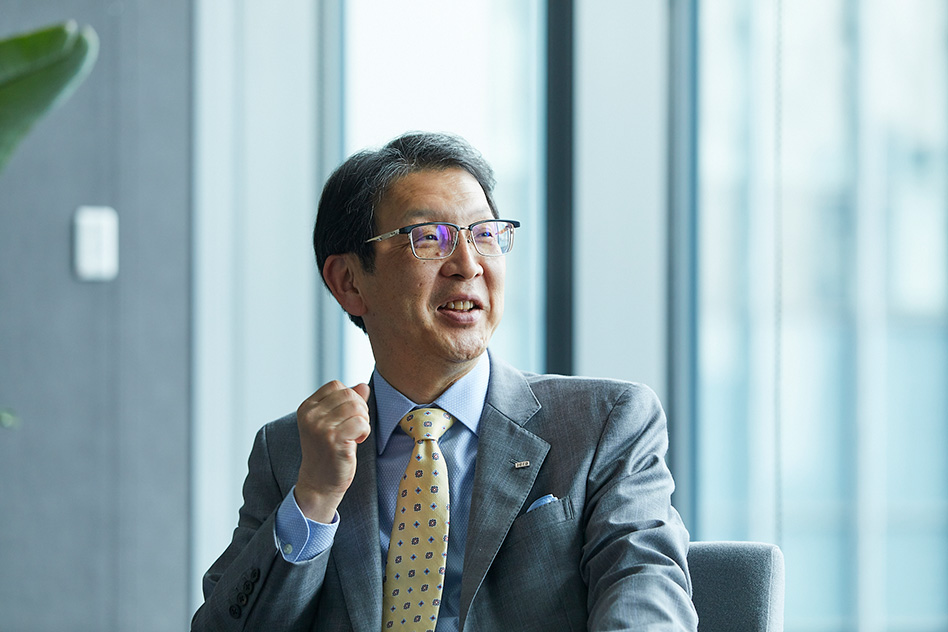
Miwa: Thank you for that insight. Even if a child like Ayako had musical talent and learned music from a young age, it would probably have been difficult for her to find opportunities in Bangladesh. Bangladesh does not have a culture of, or any structure for, extracurricular activities or clubs. The university entrance examination is the only place where children from all over the country can compete on a level playing field, regardless of wealth or family background. We began our video education project to close this gap, which begins to widen in middle school because so many students are aware that they will not be able to reach their goals no matter how hard they try. As a result, children with e-Education support grow up thinking about their own strengths and weaknesses as they study for exams, contemplating independently about what they are going to learn next. After entering university, these children not only actively engage in their own studies but also an increasing number of graduates are taking action for the benefit of children in their local communities right after they get into university.
One episode I cannot forget is the Rohingya refugee crisis of 2017. In the span of a single month, around 700,000 refugees came flooding into Bangladesh from neighboring Myanmar. It was an e-Education graduate who went into the field and conducted a survey of the issues ahead of the UN, UNICEF, the Bangladeshi government, and other organizations. I believe that part of the reason they were able to act so proactively, without being instructed to do so, is because they had found the ability to think for themselves and take their future into their own hands through the entrance examination process, however insignificant it may seem in the grand scheme of things.
Okuda: That was a very well-articulated story with sound reasoning. If I’m correct, the point you are trying to convey is that the e-Education system provides a variety of programs with videos, and you have to think for yourself about whether you want to develop your strengths or overcome your weaknesses. You make the point that thinking through and creating one's own program and using it to pass the entrance exam strengthens one's critical thinking abilities in the process.
Miwa: Yes, exactly. When I read the interview between you and Ayako, I thought the way she works within the parameters of musical notation was similar to that of test-taking, even though hers is a world of creative expression. For example, if you are good at English but poor at Japanese, one option is to get a near-perfect score in English and stop studying Japanese. I sometimes wonder if the interesting thing about taking exams is that you can choose your own path.
Okuda: So, within the various programs available, you can discover your strengths and weaknesses in the process of studying. And as you discover them, you find that many more paths open up. If someone acknowledges a notable strength within themselves, they may opt to channel their efforts exclusively in that area, seeking a transformative breakthrough. On the contrary, others might commit to doing everything they can to overcome their weaknesses. I believe that either path is a valid choice. The important thing is to have the ability to decide for yourself what the right answer is for you. I think it is significant that Kaito has imparted these ideas to Bangladeshi children. I believe that, ultimately, entering university and obtaining the ticket to pursue one's dreams is significant. However, what is even more important is teaching individuals how to make choices about what to strive for in life, and I consider it crucial that you have been able to convey this message so effectively.
Ayako, What words of inspiration have you received from your teachers? (Miwa)
Miwa: Ayako, I’d like to ask you a question. When you made the transition from pianist to soprano singer, you probably found a good teacher. In my case, it was Mr. Osamu Hayashi of Toshin High School. I was a science student who wanted to take Natural Science Course I in the College of Arts and Sciences at The University of Tokyo, but Mr. Hayashi told me, “Unfortunately, I don't sense any science in you, Miwa-kun. But you may very well be suited for contemporary literature.” At that moment, I felt liberated from the story I had been telling myself and was able to think about different options since I couldn't achieve an adequate score in some of the science subjects I had been studying for. I eventually went on to law school, but I think it would have been difficult for me to make that decision if I had not met the right teacher. I read the essay where you mention your teacher Mr. Kodama several times. I wondered what kind of relationship you had with Mr. Kodama and how he inspired you.
When my teacher told me I had an unusual voice, I thought, "This is it!" (Tanaka)
Tanaka: Let me share a story that I have never told before. When I first began thinking that it would be tough to continue with the piano, people around me suggested that I try singing. And the first time I sang, the teacher who heard me told me I was a mezzo-soprano. The mezzo-soprano is a lower female voice. I didn’t know that at the time, but I knew intuitively that it wasn’t right for me and that learning from this person wouldn’t be right either. Later, I was introduced to Mr. Kodama, who told me I had a very unusual voice. I thought, “This is it!"
Miwa: I don't know much about music, so I don’t know whether “unusual” is good or bad. Was it a compliment?
Tanaka: I think the way you interpret it depends on your personality. To me, “unusual” sounded like a compliment, and it made me feel like I could succeed. Of course, there are those who may see "unusual" as a bad thing. I decided to pursue singing because I was encouraged by someone I felt I could trust, and one of the things I wanted to ask you today, Kaito, was about finding a good teacher. I know it must be very difficult, but I was wondering if you were able to find a good teacher in Bangladesh because of your own experience with good teachers.
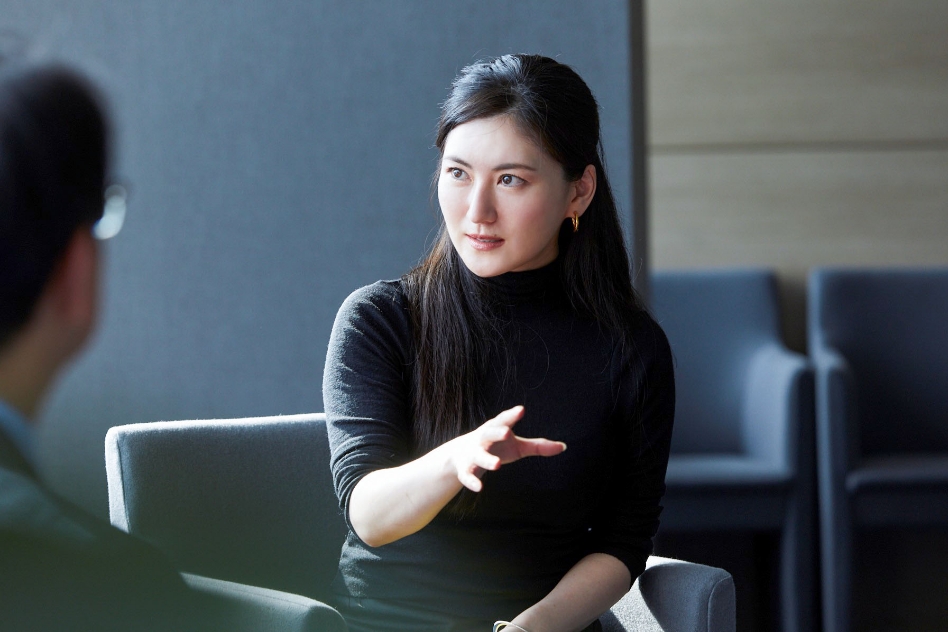
I was inspired by something my mentor said: “Only crazy people can change the world.” (Miwa)
Miwa: I was working for JICA and doing e-Education on the side when one of my mentors, Mr. Seiichiro Yonekura, said to me, "Only crazy people can change the world.” Our founder, Saisho-kun, is hyperactive by his own admission, and he would find himself acting before thinking things through. But Mr. Yonekura was quick to recognize his talent, and ever since Saisho-kun was in high school, Mr. Yonekura always encouraged him. He used to say, “We're beautiful because we're different. We can change the world because we're crazy.” When I was struggling with doubts about whether I could change the world, Mr. Yonekura encouraged me, saying, “If you're unsure, choose the path of craziness—get crazy!” The day after he told me this, I submitted my resignation letter to JICA. I know that some people may not interpret his words as a compliment. But I believe that for someone like me, who, when in doubt, has always chosen the path of curiosity and challenge ever since I was little, Mr. Yonekura was the best teacher. His words of encouragement changed my life and took a weight off my shoulders in an instant. It's hard to believe that it has been a decade since I took a chance and started working at e-Education.
"I believe that the Japanese people's reluctance to choose the “crazy” path can be largely attributed to the responsibility of the education system, which places significant emphasis on average scores" (Okuda)
Okuda: That is a very interesting notion. It’s also something you and Ayako have in common. But even if we understand that crazy notions can change the world, it’s not easy to make the decision to refine our own craziness and bet our livelihoods on it. I know many people who think they are crazy but are afraid to take action.
If Ayako had simply accepted being told she was a mezzo-soprano by her first teacher, then the coloratura soprano we know today probably wouldn’t exist. I believe that she saw her next move because she recognized her own craziness, which I think is a very important point. It may be intuitive, but she thought that the first teacher wasn’t right for her, and when the next teacher referred to her voice as "unusual," she considered how best to harness that unusualness. It’s a very important crossroads in her life. I believe that the education system has a certain level of responsibility for the tendency of Japanese people to shy away from the path of craziness.
There is no doubt that the education my generation received is an education that emphasizes being average, and everyone learns the same subjects: Japanese language, mathematics, science, music, and art, and the curriculum is all the same. In the context of music, for instance, there may be individuals who aspire to play different instruments like piano, guitar, or violin, while others may have a desire to sing or play drums. Still, other people are content with being listeners. When individuals can pursue their interests, even if they don't become musicians, there is still the possibility of becoming knowledgeable enthusiasts or individuals with a profound understanding of music. And yet, under the current education system, first graders play the harmonica, third graders play the recorder, and from the fifth grade on, students play the melodica. It makes children not want to learn, and I fear it could cause them to hate music. I think Japan is too conscious of everyone receiving the same education and programs. I’ve been to Belgium, for example, where art classes include plenty of opportunities to visit museums and see various works of art. For music education, they offer students opportunities to listen to a variety of music using CDs and take them to concert halls. If they come across something that catches their interest, they are encouraged to explore and engage with it. The distinction between Japanese education is substantial, as European education has established a framework that naturally prompts individuals to think about their personal interests and strengths. In my opinion, this is what leads to a person’s ability to thrive in the future.
As I listened to your story, Kaito, I found it intriguing to hear about your experience at Toshin High School and how you are helping children in Bangladesh navigate the entrance exam process. In the process, you help them naturally develop the ability to recognize their strengths and weaknesses, as well as think of ways to overcome these challenges.
I think that individuals can set themselves up for success by not only developing their strengths but also by experiencing failure and understanding their weaknesses (Miwa)
Miwa: From the very beginning, our work has placed great importance on increasing the options available to people. And now, with a wider range of options available, I often wonder what we will be able to accomplish and the possibilities that will unfold. While it is important to develop your strengths in order to live true to yourself, I have come to the realization that experiencing and understanding your weakness can set you up for success. I read Ayako’s discussion with Dr. Kenichiro Mogi, and I found their exchange about “desirable challenges” to be very insightful. I don’t think there’s much of a failure-tolerant culture in Japanese schools or companies. With startup entrepreneurs, we talk about how there is value in failure. As I pondered the origins of this cultural gap, I encountered your story, Ayako, and it occurred to me that as a 17-year-old teenager exploring a career as a pianist, you must have had experience recognizing her weaknesses and inabilities. Can I ask how you feel about identifying your own weaknesses?
I trick myself by placing my weaknesses inside an invisible wrapper, allowing me to compartmentalize them and move on (Tanaka)
Tanaka: I am aware that even if I fail at something, I shouldn’t let it define me and consciously avoid developing a sense of inadequacy or incompetence. Once you admit that you’re not good at something, it makes it much more difficult to do. If it’s something I can eliminate, then I eliminate it. If not, I try to place it inside an “invisible wrapper” of sorts and trick myself into thinking that I’m engaging with that thing for the first time every time I do it. Even if it’s something I can’t avoid, if it continues to be impossible for me to do, I remove it from view and find an alternative way around.
Miwa: Is that something you have done since you played the piano?
Tanaka: Yes, constantly. In the course of my relatively short life, I’ve strived to explore things until I’m 100% convinced that I’m not good at them, and I try to allocate sufficient time for contemplation before arriving at a decision.
Miwa: I don't think that is something that can be learned in Japanese society or schooling.
Tanaka: Yes, I agree. As far as averages go, I found it very difficult to cope with trying to do everything well. For example, even if I got a very good score in one subject at school, the teacher would scold me if I did poorly in another. On the other hand, my parents raised me to be free-spirited and would shower me with praise when I got good grades in any subject. This way of thinking was a major factor, for example, when I played the piano. My hands were small back then, making it challenging to play anything that required more than one octave. However, if I admitted that, I knew that I would have to quit playing. So, I worked as hard as I could until my brain was 100% convinced that I couldn’t play anymore. That’s why I used to deliberately choose works that required one full octave, but the moment I finally acknowledged that it was beyond my capabilities was when I quit the piano for good.
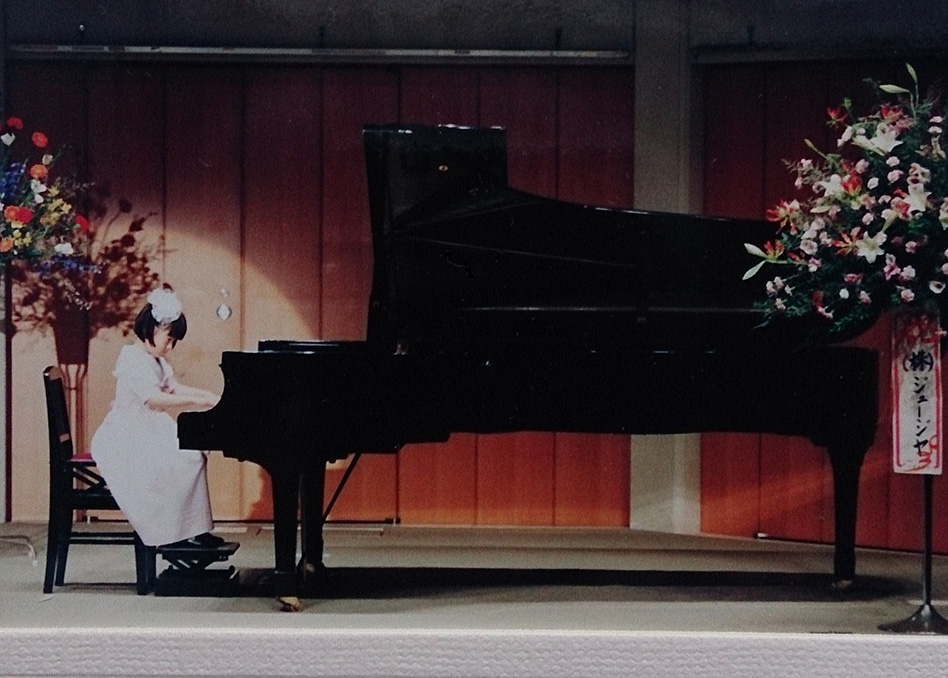
Miwa: Be it studying or taking exams, many teachers instruct their students to recognize their weaknesses at an early stage, but I am not sure if this is the right approach. Personally, I pushed myself to the limit and failed the entrance exam for the science course at The University of Tokyo twice, after which I reached the definitive conclusion that I truly lacked talent in the field of science. When it comes to important mindsets to avoid regret, I think the earlier discussion about an "invisible wrapper" is spot on. Rather than simply erasing things we recognize as weaknesses, it might be important to cover them with an invisible wrapper and keep them hidden for a while. It’s a valuable way of dealing with failure, don't you think?
Okuda: Now that you mentioned it, I'd like to hear Ayako play the piano. Because I believe that playing the piano well and playing piano in a way that moves people are two different things. I love classical music, but if you ask me if someone who wins a piano recital is the same as someone whose music moves me, I don’t think that’s the case. The piano played by a person with small hands may not connect the sounds as smoothly or as well as someone with larger hands. However, it may convey something more precisely because of that. At least, that's what I thought after hearing what you just said. And in some ways, that may not necessarily be a bad thing. It may be that labeling something as a "weakness" in the context of societal standards doesn't necessarily reflect how a casual listener may perceive it.
In the business world, for example, a person who gives a slick presentation does not necessarily persuade others. Some people would even detect an artificial quality to it. On the other hand, there are those who speak plainly—even stumbling over their words—but are perceived as absolutely genuine and trustworthy in what they are saying.
Although a sense of inability is often subjective and self-imposed, the person hearing the music or message may not necessarily interpret it as such. Many individuals tend to think they are bad at math and give up as soon as they make a mistake. However, unbeknownst to them, they might possess the ability to envision advanced concepts in their mind and may even have the potential to become exceptional mathematicians. Hence, I think there is a considerable problem with an educational policy that dismisses individuals as incompetent in a particular skill or tool when they encounter failure. There are plenty of situations where it would be wonderful to show them what might lie ahead if they just continued a little longer.
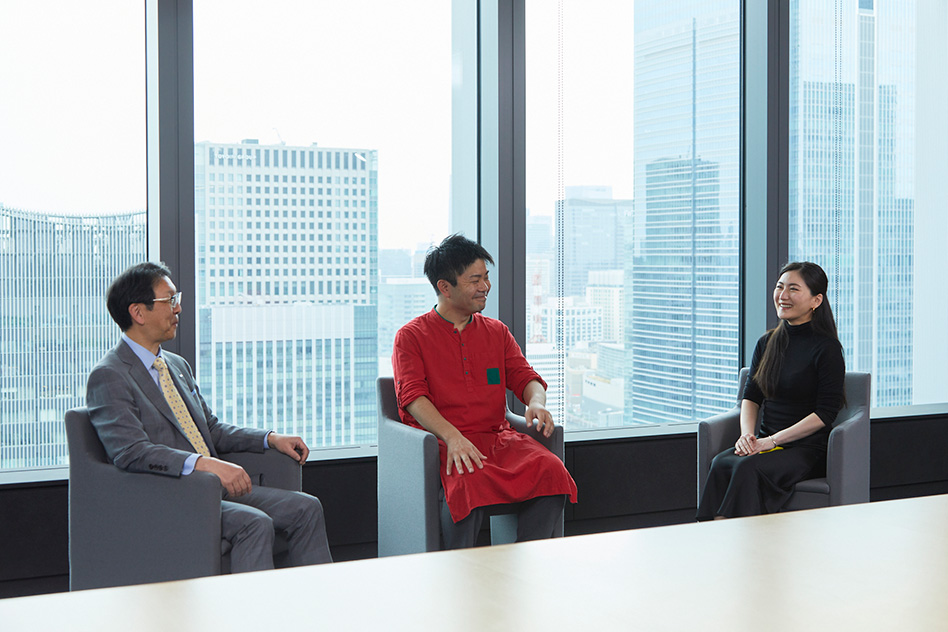
Miwa: Ayako's comment about compartmentalizing things really resonates with me. And as you just mentioned, Mr. Okuda, current Japanese culture may be a culprit, equating failure with weakness. I see failure as the result of challenge, a step forward and an important turning point that takes us down a different path from our weaknesses or difficulties.
(To be continued)
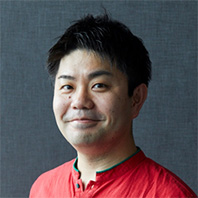
CEO of e-Education
Kaito Miwa
Born in 1986, Miwa founded the predecessor to e-Education together with Atsuyoshi Saisho while studying at Waseda University. Using video education, they supported impoverished high school students in Bangladesh who were preparing for university entrance exams, and from their first year of operations, saw many students successfully gain admission to university. After graduating from university, Miwa worked at JICA (Japan International Cooperation Agency) while managing e-Education’s overseas operations. He left JICA in October 2013 and became CEO of e-Education in July 2014. To date, the e-Education project has delivered support to 30,000 middle and high school students across 14 developing countries. In 2016, Miwa was selected for Forbes’ “30 Under 30 Asia” list, and in 2017, he won the first Catapult Grand Prix at ICC Fukuoka. Miwa is the author of Compassion Presentation (Hyakupāsento kyōkan purezen, Daiyamondosha, 2020).
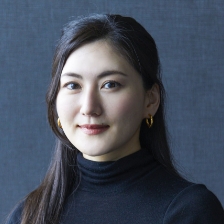
Soprano singer President, Japan Association for Music Education Program
Ayako Tanaka
At the age of 18, Tanaka traveled to Vienna alone to study. At 22, she made her debut at the Stadttheater Bern in Switzerland, becoming the youngest soloist ever in the theater and the first Japanese person to perform there. Since then, she has performed in Vienna, London, Paris, Buenos Aires, and many other cities worldwide. Tanaka won “Best World Premiere Piece” by the Argentine Music Critic Association for her performance of Esteban Benzecry's “The 5 Cycle Songs for Coloratura Soprano and Orchestra" in Buenos Aires. The album received five stars from the BBC Music Magazine, the world's best-selling classical music magazine.
Tanaka is also engaged in giving back to society through activities such as the SCL International Youth Music Festival held in Vienna with the support of UNESCO and the Austrian government to assist young performers, as well as the National Youth Orchestra of Argentina, which was established with the support of the Argentine government to provide education to young people of various backgrounds and family situations through music.
Tanaka was named one of Newsweek's "100 Most Respected Japanese in the World" in 2019. She sang the Japanese national anthem on October 22 at the opening ceremony of the SMBC Nippon Series 2022.
Born in Kyoto, Tanaka lives and works in Vienna.
RELATED STORIES
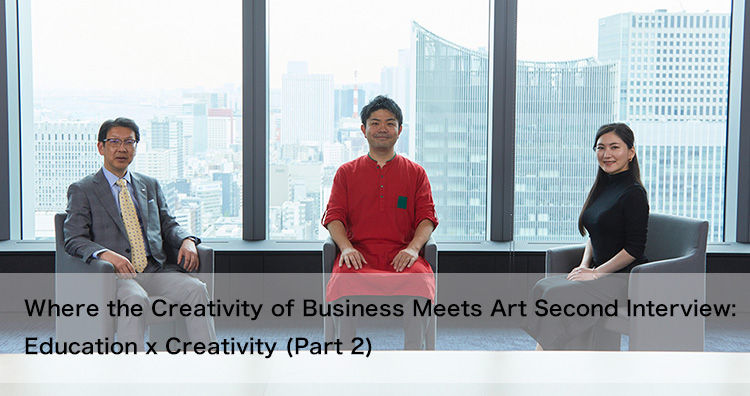
Where the Creativity of Business Meets Art Second Interview: Education x Creativity (Part 2)
Recently, I've developed a new presentation style, where I seek to connect with the audience by openly sharing my weaknesses
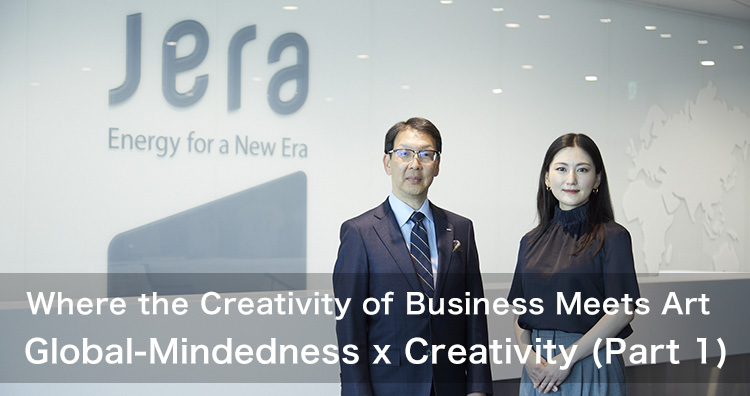
Where the Creativity of Business Meets Art Global-Mindedness x Creativity (Part 1)
First of all, I am very honored to be able to speak with you today. But this is not the first time we’ve met.
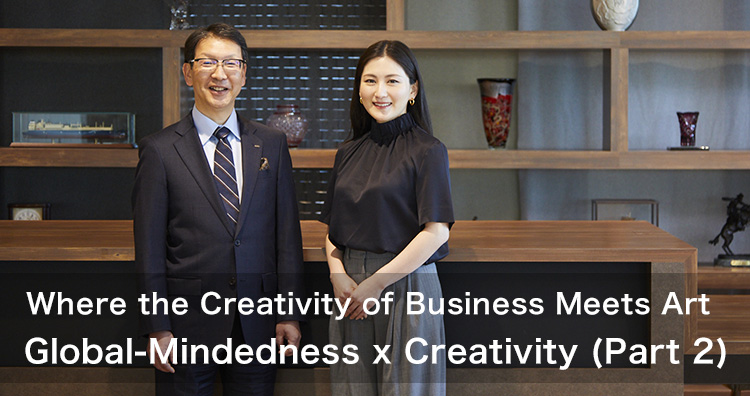
Where the Creativity of Business Meets Art Global-Mindedness x Creativity (Part 2)
In our previous conversation, I felt that some of the keys to your global success were your decisiveness, …

